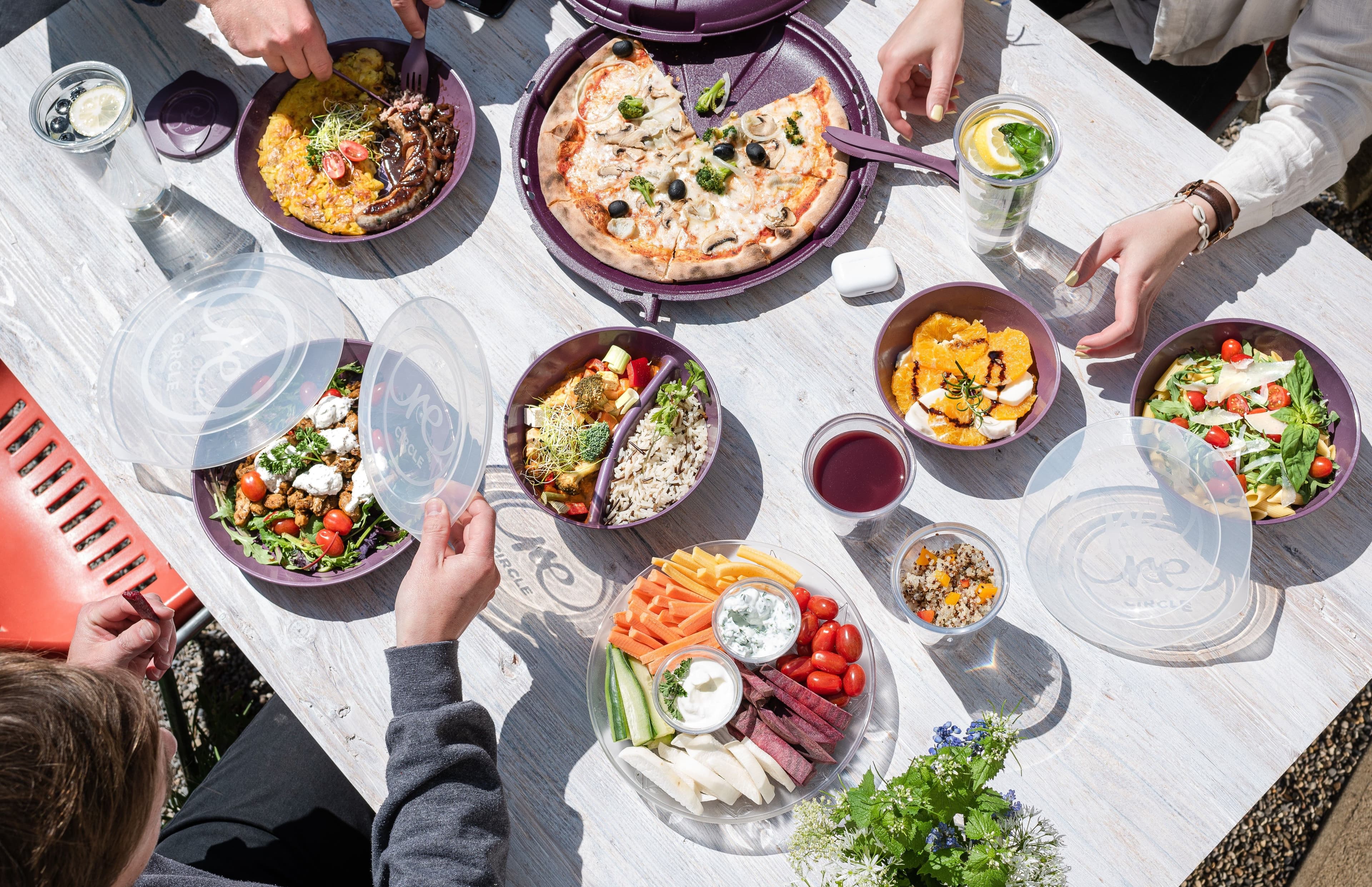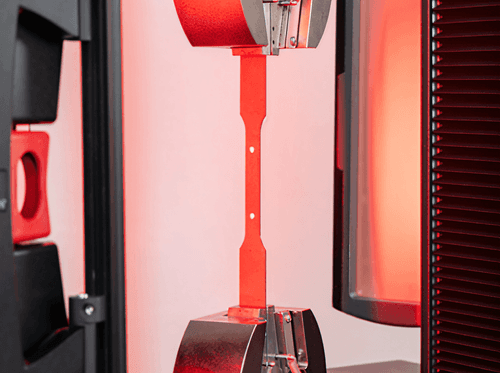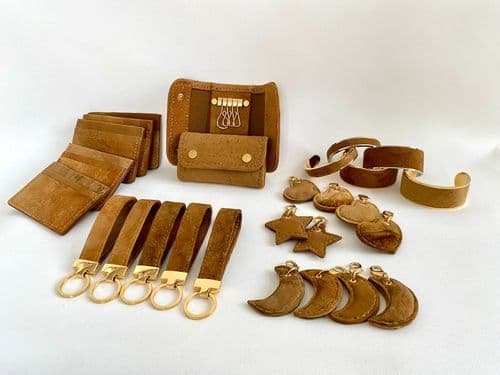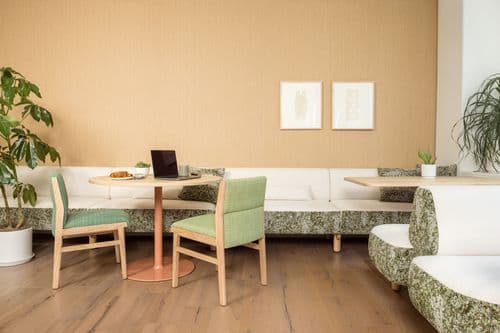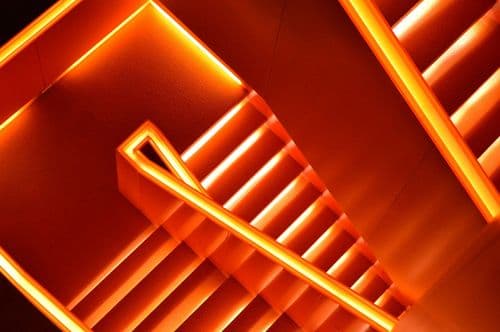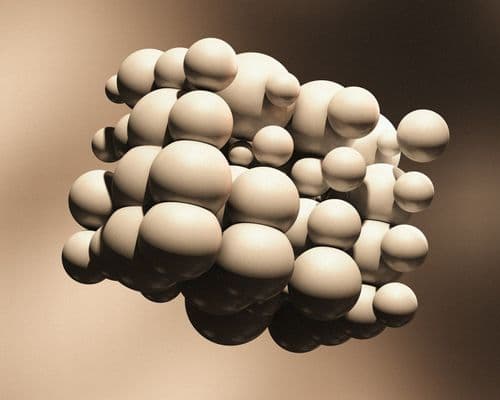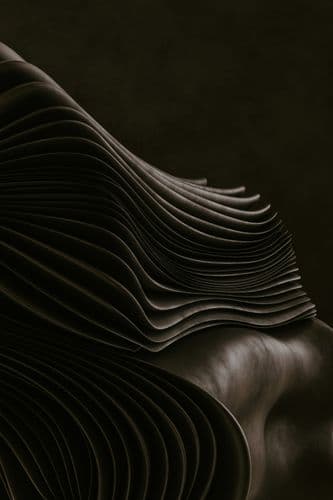Can you describe the specific properties of polybutylene terephthalate (PBT) and why it was chosen for reCIRCLE BOXes?
PBT is a very durable, high-quality, odorless, and safe mono-material plastic. It is free from BPA and other harmful substances. Exhibiting excellent thermal stability, it can endure a wide range of temperatures, making the material dishwasher, freezer, and microwave compatible. Our PBT products can even be placed in the oven at up to 161°C for short periods.
PBT is inherently resistant to oils, fats, and acids commonly found in food products. This ensures that the packaging does not degrade or react with the food, maintaining its safety and integrity. Our material is specifically manufactured to comply with food safety regulations, ensuring that it does not leach harmful substances into food, making it safe for direct contact.
PBT has low moisture absorption, which is crucial in the gastronomy sector, where efficiency is paramount and hygiene standards are very high. This means the material dries quickly, even without using a towel. It is very sturdy and durable, with good dimensional stability, robust enough to withstand repeated use and mechanical stress without degrading. At the end of its lifecycle, it can be fully recycled.
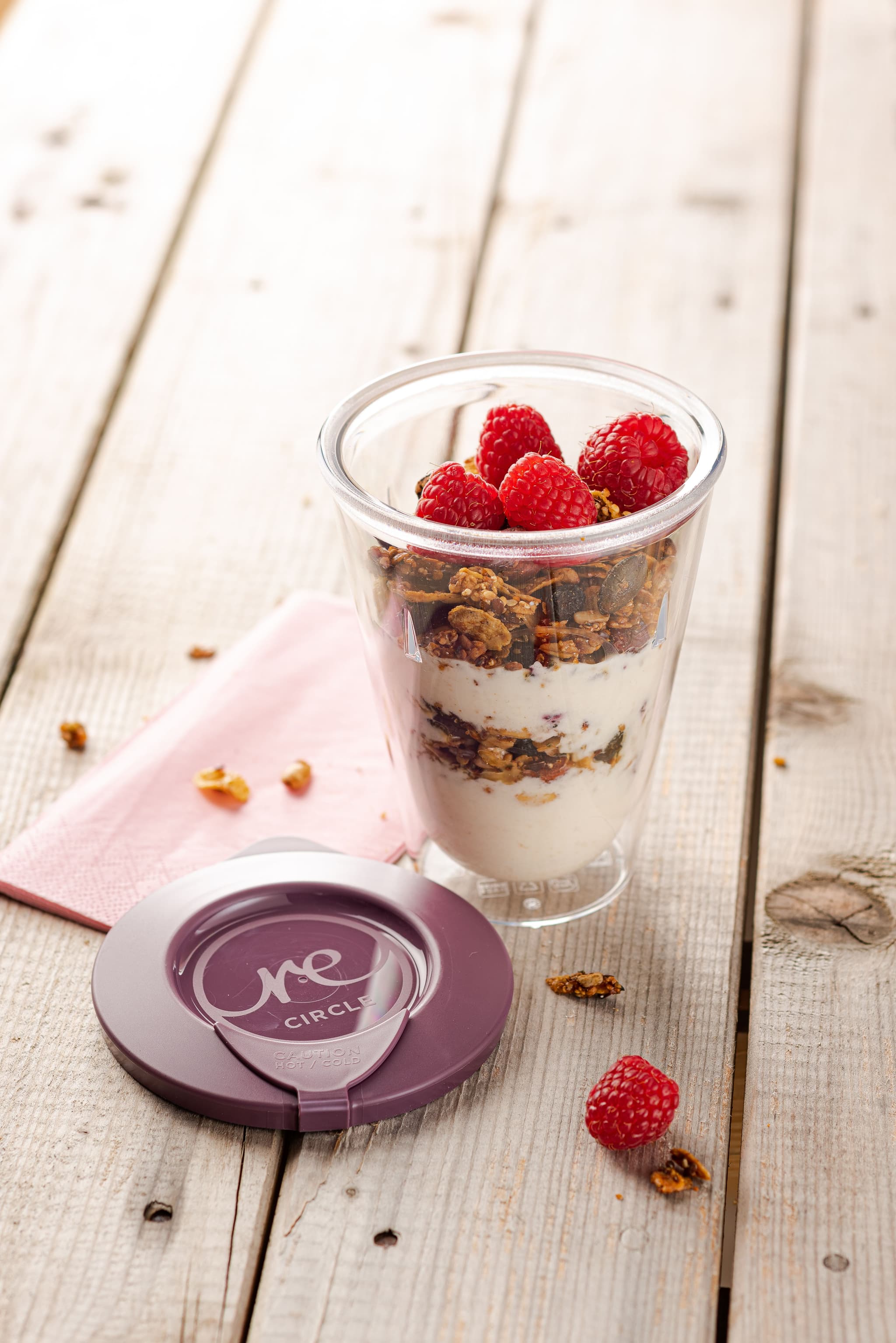
Can you explain the process of integrating glass fibres into the PBT material and how this enhances the durability of your products and eventually your service?
We purchase the PBT GF30 in our desired colors, ready to use, from the material manufacturer. The glass is added—like any supporting substance—through a process called compounding. The PBT is melted, glass fibres are added, and then the mixture is extruded and cut into pellets, which is the form in which we receive it.
The glass fibre reinforcement enhances the dimensional stability, mechanical strength, and durability of the already sturdy PBT, ensuring that the packaging maintains its shape and functionality throughout hundreds of use and wash cycles. It also improves the material's moisture resistance. Essentially, the glass fibres amplify all the beneficial qualities of PBT, allowing the products to be used for longer. Additionally, the glass reinforcement makes the products slightly lighter.
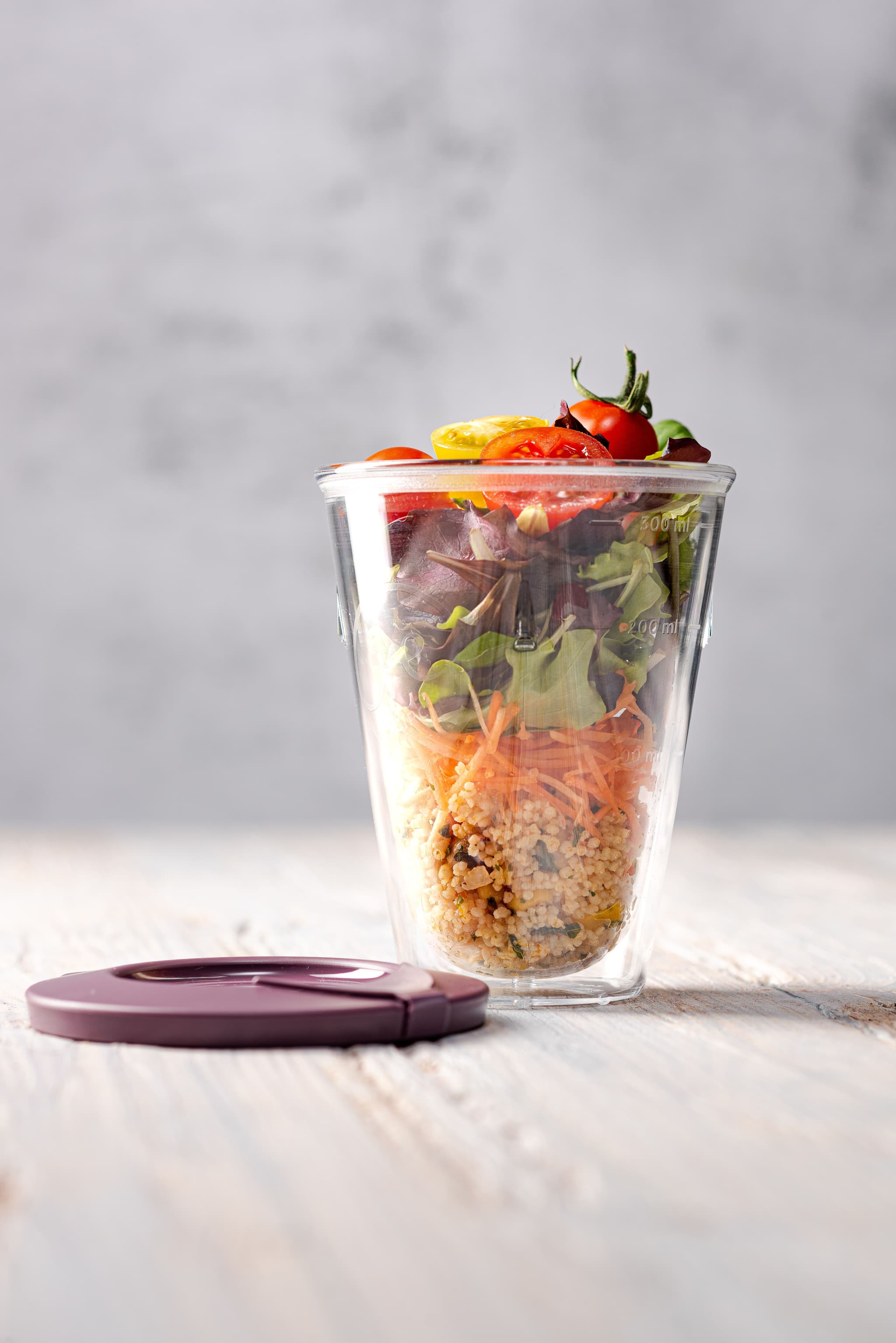
Can you explain the technical considerations involved in designing tareable packaging for self-service buffets?
For packaging to be tareable, it needs to have a very consistent weight and a good stand, which means it needs to stand steadily and have an even material distribution. Mainly, this means that the mould needs to be extremely precise, as there is very little tolerance for weight difference. In our case, the weight range is 3%, which is mainly due to the glass reinforcement, as in the manufacturing process, the amount of added glass can range between 28.5% and 31.5%. For the tareable weight, we must therefore take this into account.
To determine the tare weight, we produce a batch of 100 pieces and weigh them. The value used for programming the scale has to be the highest weight, if the packaging is too heavy, there is a risk that customers may pay too much for their food.
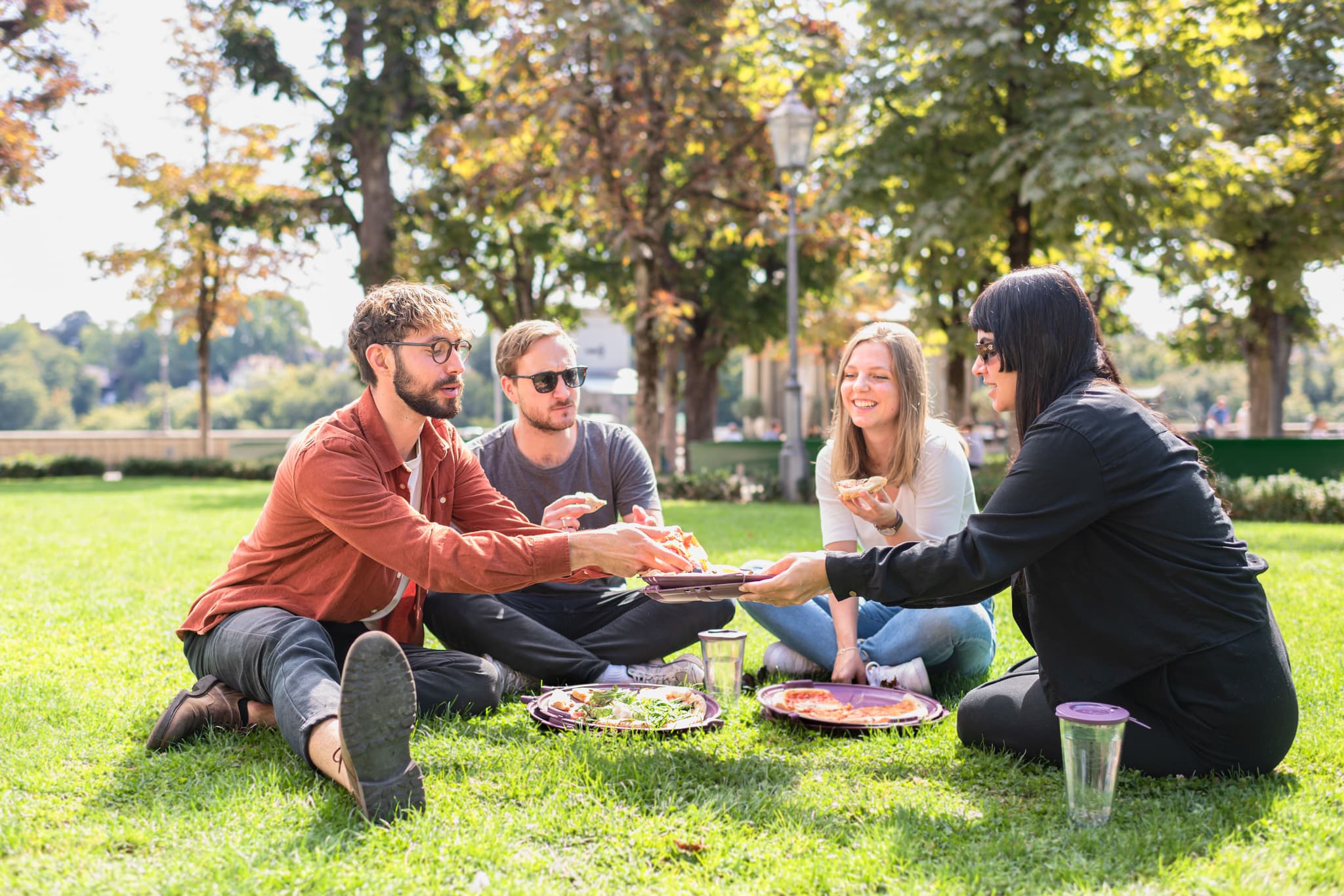
Can you explain how the reTURN STATION works and the technology behind it to handle reCIRCLE ISY cups and other packaging?
The reTURN Station is currently only able to process ISY cups. It is activated through NFC, using the reCIRCLE App. It contains a vertically rotating cylindrical element, that serves as the “door”. The door opens, as the cylinder rotates and reveals a space to put the ISY.
On the App, the user confirms that the ISY is positioned, the cylinder rotates back and the ISY disappears inside the reTURN station. The ISY is photographed, and, via 3G, the photo is sent to a server, hosting an AI that is trained to recognize the cup and determine if it is empty, whole and the lid is closed. The AI communicates back to the reTURN Station which then either accepts or declines the cup, turning inward to push the cup down into a basked and thereby completing the process, or turning back outward, so the cup can be reclaimed by the customer.
If the cup (or whatever was put in) is not reclaimed, after 30 seconds, the cylinder automatically turns back inward, and the cup is also thrown into the basket.
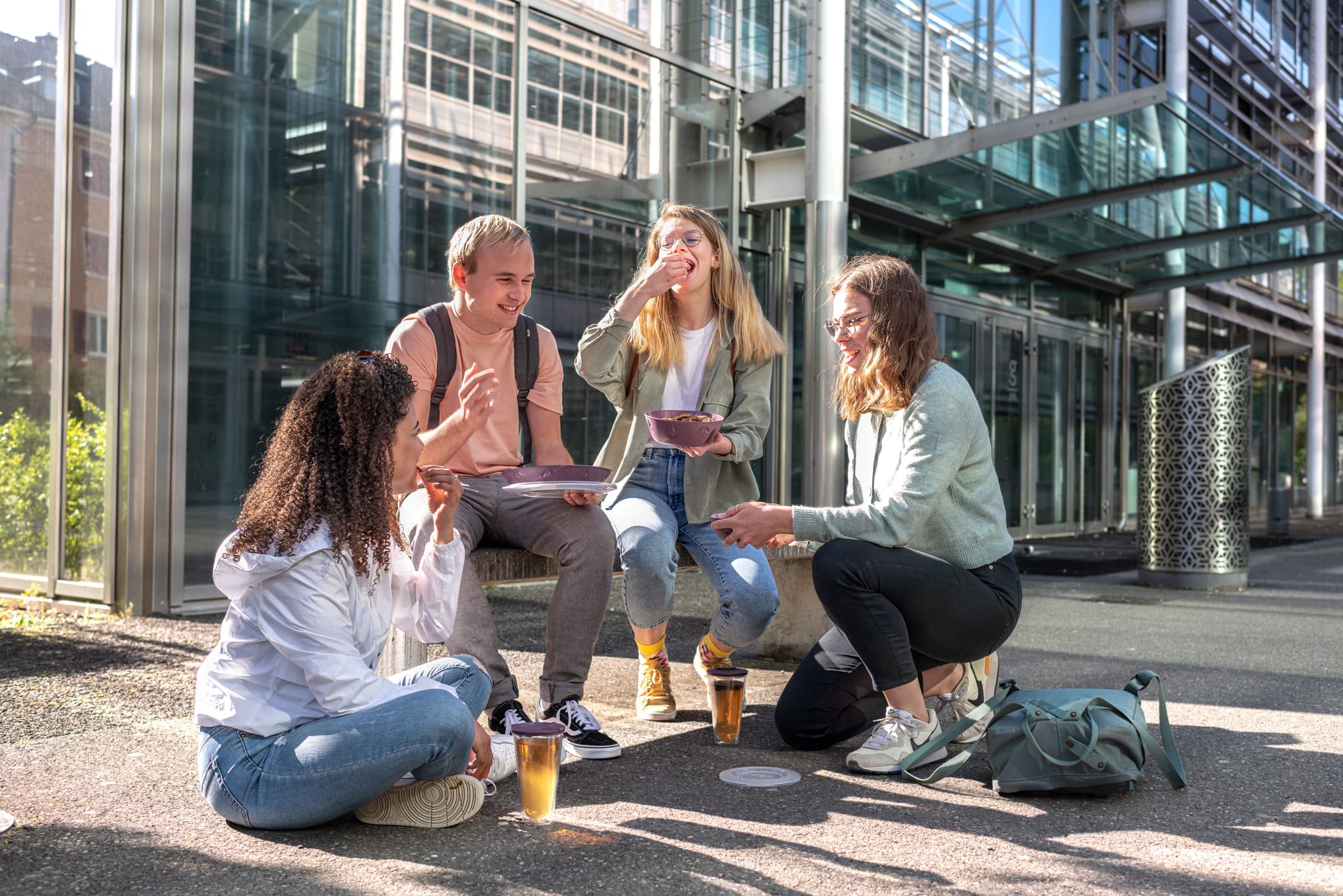
How do you monitor and control the quality of materials sourced locally for the production of reCIRCLE service?
We purchase our materials from different manufacturers and only use those declared safe for direct food contact. However, we prefer to verify rather than just trust.
Therefore, any new material we intend to purchase is first tested by a Swiss governmental laboratory. This way, we have physical proof that the materials are safe for our application.
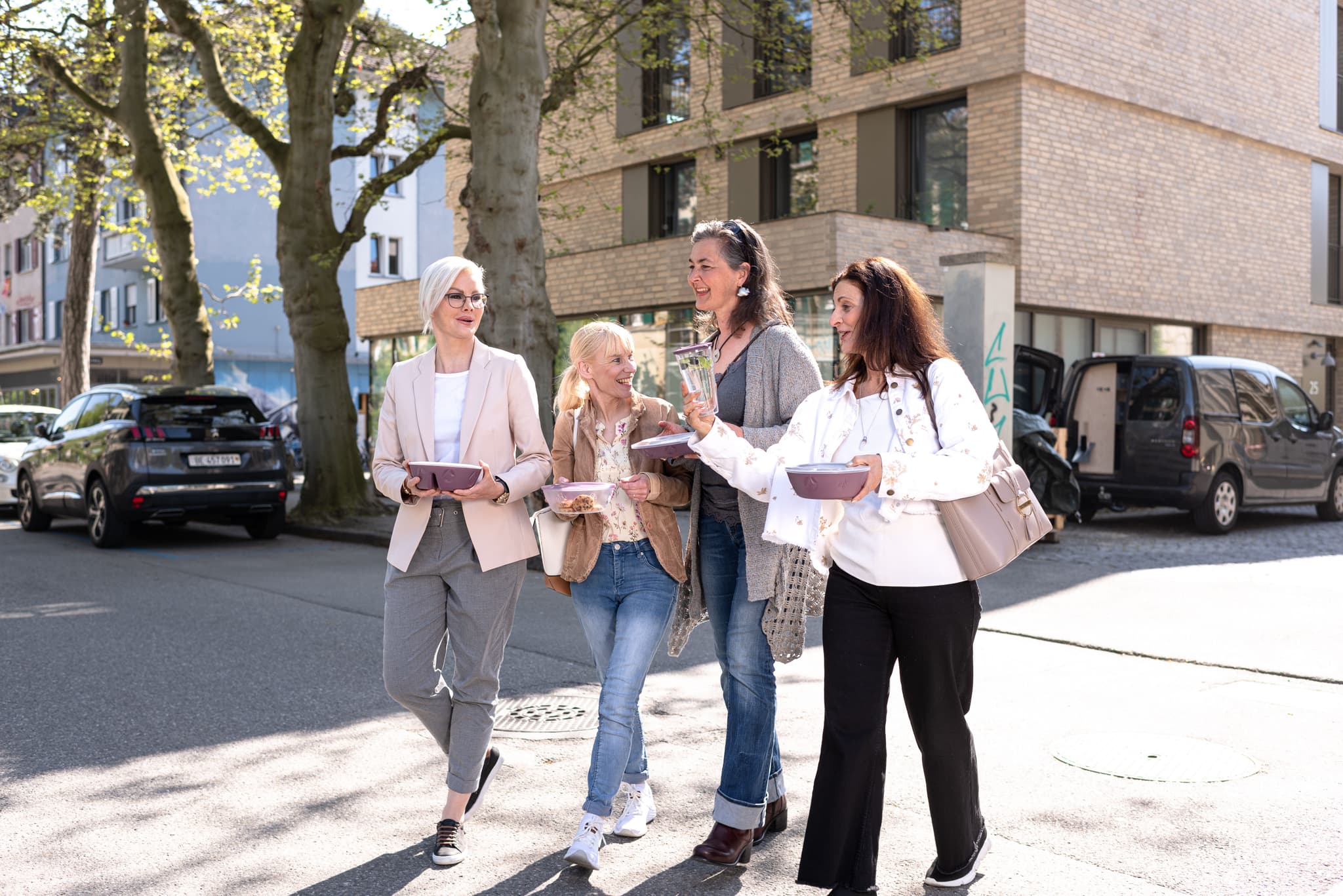
What strategies have you implemented to encourage takeaway restaurants and their customers to adopt reCIRCLE service?
reCIRCLEs are designed to be durable, leak-proof, and user-friendly, ensuring a positive experience for both restaurants and customers. The recognizable and functional design makes them memorable, and after the first use, most people are convinced of the benefits our products offer. We also provide a range of container sizes and types to meet the needs of various restaurants, ensuring that the system is versatile and widely applicable.
We partner with restaurants through a product-as-a-service model, providing them with our products and everything needed to promote reuse. This approach makes it relatively easy and economically beneficial for restaurants to join the network. We also offer a range of marketing materials and support to help promote reuse to their customers. This includes POS materials, digital marketing assets, staff training, and on-site promotion during lunchtime.
Customers pay a small deposit to use reCIRCLEs, which is refunded when they return the container to any participating restaurant. This encourages returns and ensures the circulation of the products. reCIRCLE focuses on making the concept as convenient as possible, which is why it is designed to be straightforward to encourage adoption. On our website and app, we offer an overview of all participating restaurants in the form of a Google map.
Some restaurants offer discounts or incentives to customers who use reCIRCLEs. This can be a direct discount on their meal or special offers. We have been testing the implementation of loyalty programs that reward customers for frequent use of reCIRCLE to see if this can drive adoption and repeat usage.
We collaborate with local governments (cities and communes) that motivate restaurants by subsidising the cost of reCIRCLE, making it more accessible for them to participate. We like to share success stories from both restaurants and customers, as well as impact statistics (e.g., how many single-use containers have been saved) to build trust and demonstrate the tangible benefits of the system.
We also run educational campaigns highlighting the environmental benefits of reusable packaging and the concept of the circular economy in general. This appeals to environmentally conscious consumers and helps us find allies, as our mission requires widespread support to succeed.
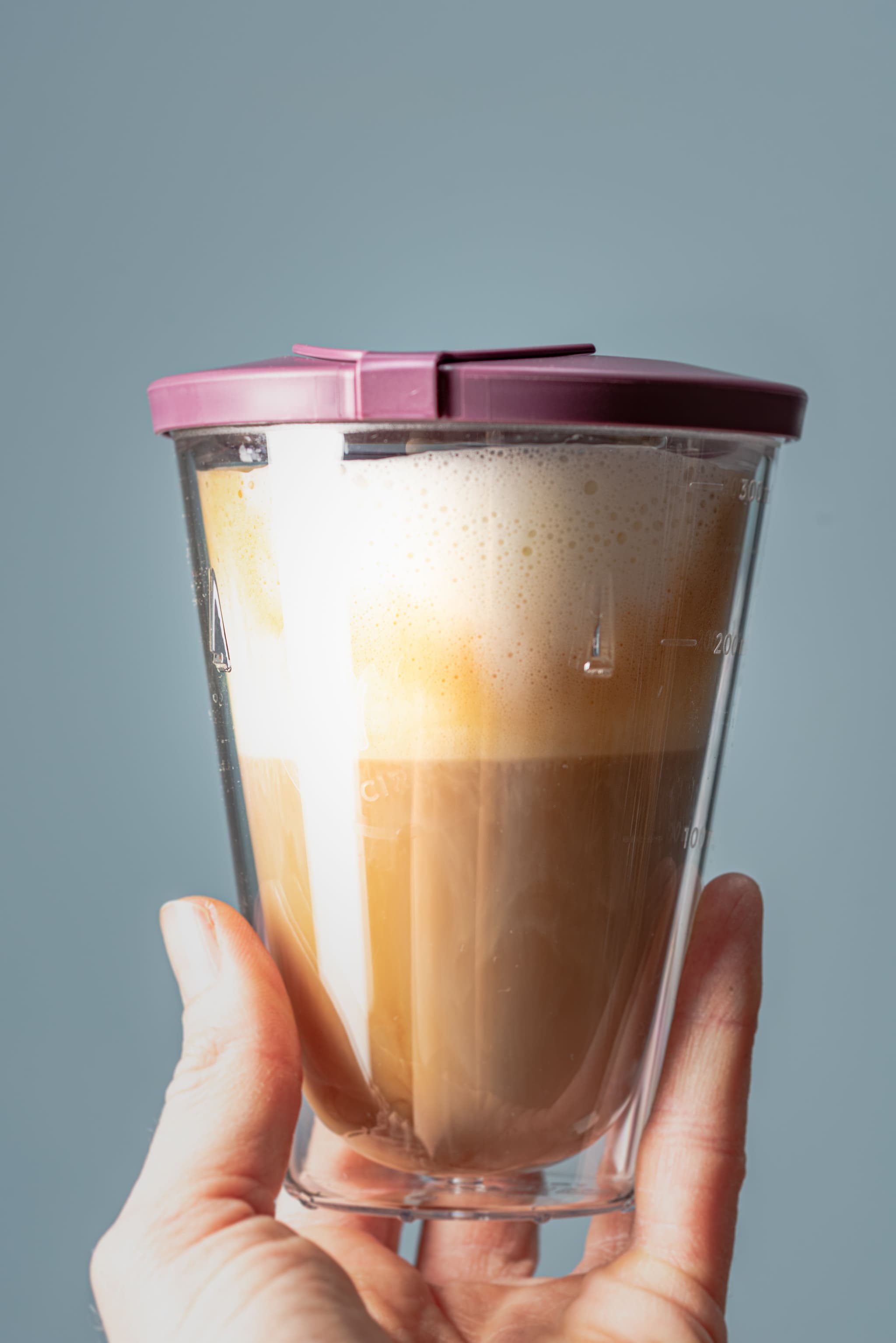
Could you describe your collaboration with Stefan Kälin AG in Einsiedeln? How does this partnership enhance the quality and sustainability of reCIRCLE service?
SKAG is a family-owned and led company with expertise in injection moulding and mould manufacturing. We have been working with them for many years and the partnership was originally formed because Daniel Kälin, the owner and CEO, believed in our vision and was ready to take the risk of supporting us as a start-up. They have produced all our products to date. Their engineers are involved in our product development from start to finish, as their knowledge of technical feasibility is extremely valuable and crucial to the success of our products.
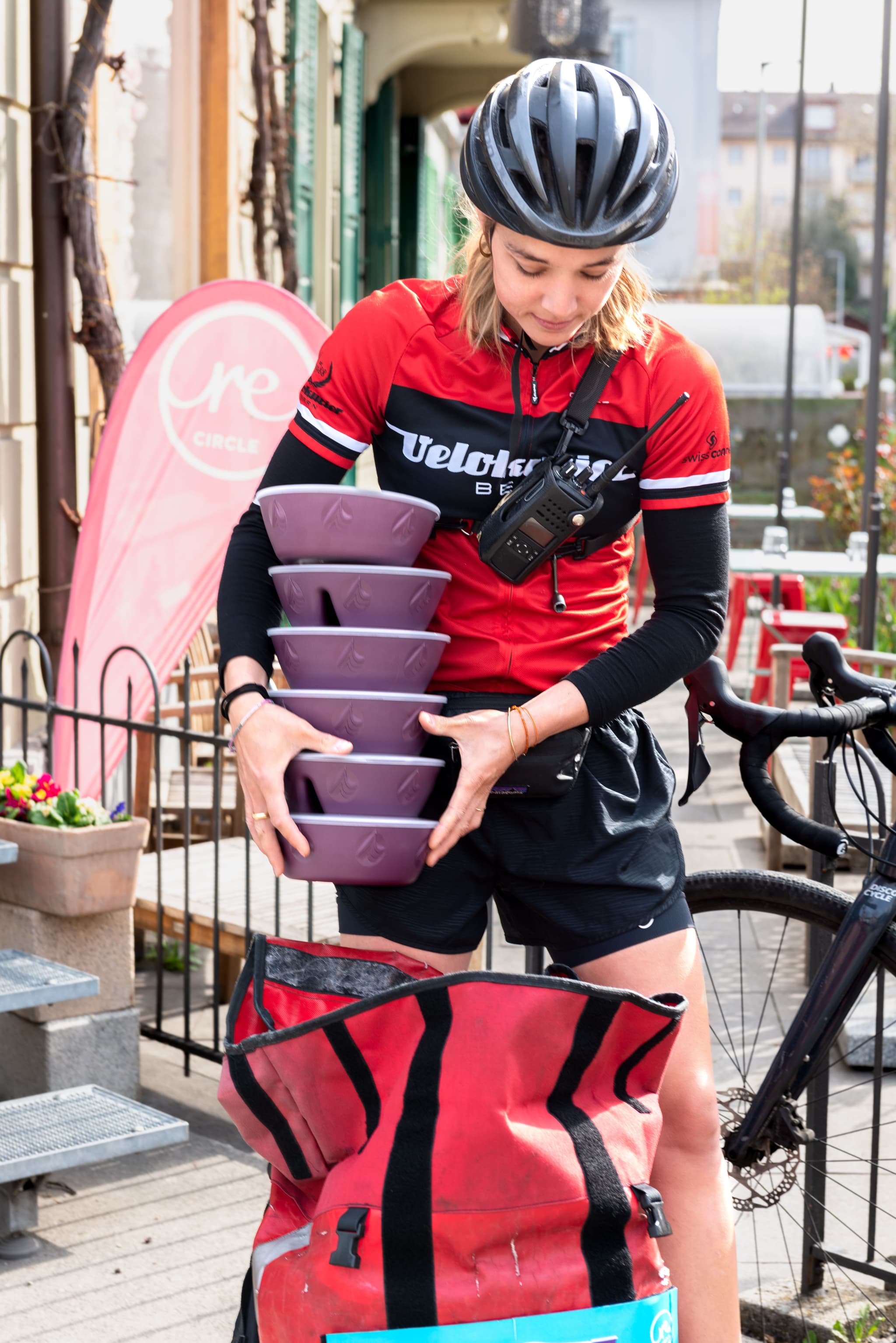
What are the next milestones we can hope to see from reCIRCLE?
Our goal is to build a network of 10,000 reCIRCLE partners throughout Europe by 2030 and achieve 5 million usages per day. To reach this goal, we have many measures planned: we are currently participating in a Horizon Europe research project called “STOPP”, aimed at promoting reuse schemes across the entire food packaging value chain and closing material loops. We are founding members of New Era, an association uniting reuse operators across Europe to change the legal framework for food packaging. Furthermore, we are exploring ways to simplify the use and return of our products to make them more accessible with the help of digital solutions.
